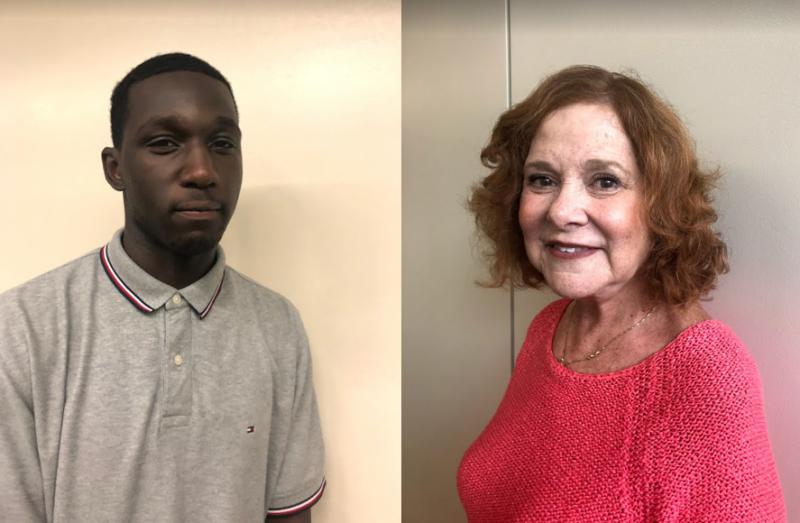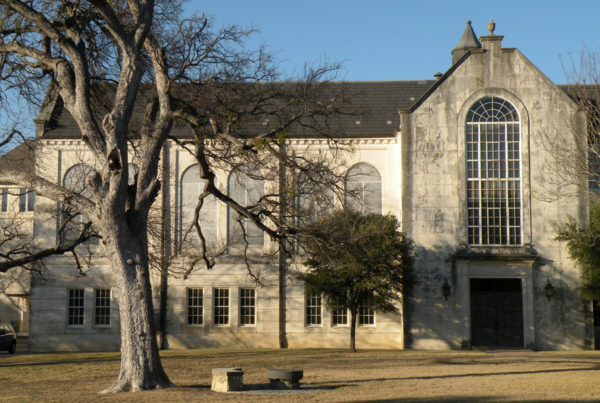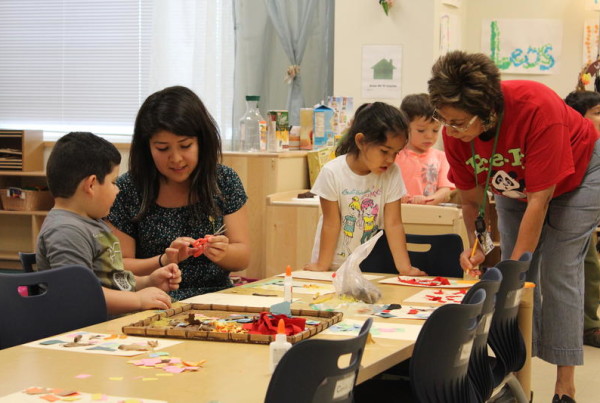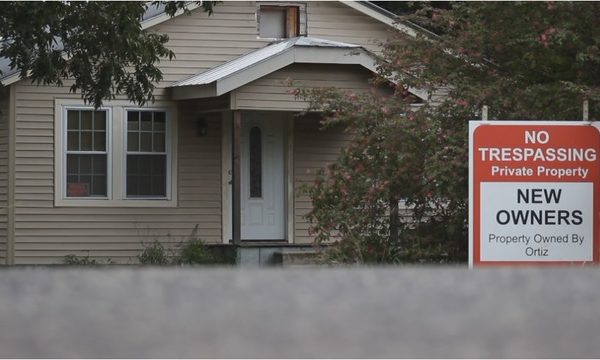From KERA:
Sandy Lyons heard about Da’Keondrick Whitley a long time before he set foot in her second-grade classroom at Presidential Meadows Elementary School in Manor, Texas, northeast of Austin.
“I had heard that he was a troublemaker, that he was immature, that he had temper tantrums if he didn’t get to have his way,” says the now-retired teacher.
And Da’Keondrick lived up to his reputation. Lyons remembers one day when the students were working on an art project. Da’Keondrick was trying to draw Superman.
“He couldn’t get it to look just exactly right, the way he wanted it to. So he just had this huge meltdown…ripping it up and cramming it into his desk,” Lyons recalls.
Da’Keondrick is 17 now. He says, back then, he would “get mad in an instant.”
“I had a really bad habit of talking back,” he remembers. “I thought I knew everything, so if a teacher was trying to tell me something, I’d probably throw it back in their face for no reason.”
But there was a lot about Da’Keondrick that his kindergarten and first grade teachers hadn’t told Ms. Lyons about. Like how bright he was. He would bring newspapers to class and debate the student teacher about Obama vs. McCain. He’d teach himself how to spell big words he heard on TV, like “casualty” and “insurance.”
“He would come in every morning and tell me, ‘Ms. Lyons, I learned to spell a new word!’” says his old teacher. “And his words were always real off-the-wall kinds of words and I would say, ‘Where did you learn that?'”
In spite of his defiance, Da’Keondrick wanted to show his teachers how much he knew.
“I wanted them to think I’m smart. I wanted them to look at me a certain way, and just be different,” says Da’Keondrick.
Lyons realized that Da’Keondrick was acting out so much partly because he was bored. While other second graders were working on math problems, like 7 + 3 = 10, Lyons says “he got to where he would always do numbers in the thousands. He loved doing that to make the other kids just shocked at him.”
So she started giving him harder material, especially in math.
“I think it made him feel special to enjoy doing the work when it was his own thing,” says Lyons. “And everybody knew that he did his own thing, especially during math time.”
But Da’Keondrick didn’t always want harder material. Even though he was smart, he also had his insecurities. If he couldn’t do something perfectly, he’d rather not do it at all. He’d get angry when he had to actually work. He remembers an incident, right around winter break, when he got so furious that he wrote “I hate you, Ms. Lyons!” all over his folder.
“I remember her actually looking pretty sad when she saw that,” says Da’Keondrick. He recalls thinking “Wow, I feel so bad. Why did I do that?”
Lyons admitted she felt “defeated.”
“I felt like I went above and beyond and wanted him to be successful so badly,” she says. “So whenever he would have little breakdowns, I felt like a lot of the stuff I had accomplished hadn’t really been that much of an accomplishment.”
Despite her decades of teaching experience, Ms. Lyons didn’t know how to reach Da’Keondrick. It seemed he was teetering on the edge of becoming a brilliant student – or failing.
“There was something about him that kind of tugged at my heart,” says Lyons. She felt like her student was on a “fine line.”
“I really wanted to bridge over that gap even though I felt frustrated,” she says.
Ms. Lyons kept trying. She bought Da’Keondrick advanced math books and found someone to teach him chess. They had long conversations about everything from politics to her pet dog. Lyons remembers him as very funny.
“He had a mature sense of humor, so he and I would come around to where we could kind of joke around with each other, and I think that was kind of a hand across the bridge,” says Lyons.
She made him help other students in math, too. Da’Keondricks remembers that she told him to use what he had to help other students, saying “These students can’t do that alone. Not everyone is like you.”
Her words resonated with the young boy.
“I had anger issues because everyone wasn’t like me, they didn’t see the same things the same way,” he says. “She told me I had to go help other people because I could.”
What really helped turn the tide was Lyon’s relationship with Da’Keondrick’s mother. They had long talks at parent-teacher conferences and over the phone. The teacher even visited the family’s house.
“My mom, she was like, ‘That teacher really cares about you,'” says Da’Keondrick. “I was like, maybe she does.”
Later in the year, Da’Keondrick needed a ride to a math competition when his mom couldn’t get off work. Lyons stepped in and drove him there. He says, that helped him realize his teacher really did care about him.
Da’Keondrick’s anger gradually cooled down. Lyons found it easier to motivate him, although he still “took a little convincing to be able to try” sometimes.
“Then, after repeated conversations, he could get to where he could look at me and smile like, I know what you’re going to say. He’d kind of put his hand on his forehead. I know what you’re going to tell me, I know,” Lyons laughs.
Over the years that followed, Da’Keondrick grew into a confident, accomplished student — the first in his family bound for college. For Lyons, he served as a reminder to always search for the hidden gifts of her students – regardless of what their old teachers say.
“I was always looking for someone else that had that glow that Da’Keondrick had, that little spark of interest,” she says. “He left a certain impression on me that I will carry with me forever.”
Lyons retired three years ago after 40 years of teaching. Da’Keondrick is a senior in high school and is taking accelerated classes so that he can graduate with an associate’s degree. His top choice for college is MIT.
He says he would never dream so big if it hadn’t been for Ms. Lyons – the first teacher who made him realize he was capable of so much more.
“What My Students Taught Me” is produced in partnership with the Teacher Project at Columbia Journalism School.














